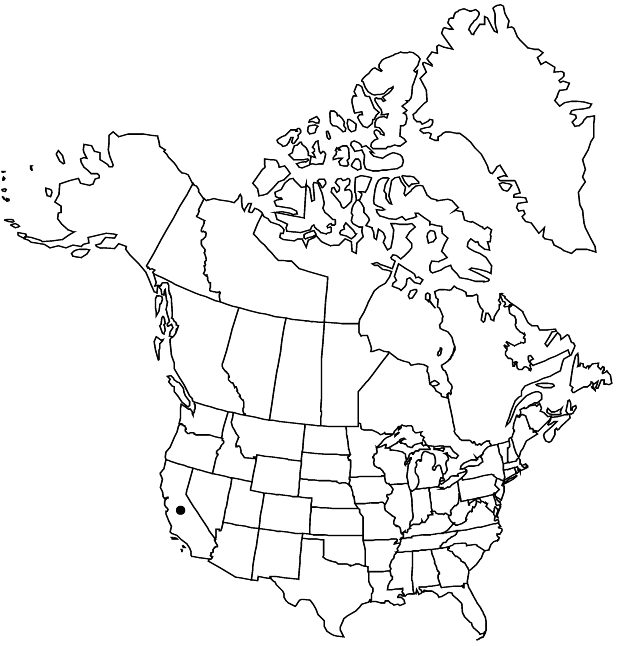Arctostaphylos pilosula
Erythea 8: 101. 1938 ,.
Shrubs, erect, 1–5 m; burl absent; twigs short-hairy and hispid. Leaves: petiole 4–8 mm; blade dark green to gray-glaucous, dull, narrowly elliptic to orbiculate-ovate, 1–3 × 1–2 cm, base cuneate or truncate to slightly lobed, margins entire, plane, surfaces smooth, glabrous. Inflorescences racemes, simple or 1-branched; immature inflorescence pendent, axis 1–2 cm, 1+ mm diam., short-hairy with long hairs; bracts not appressed, (green), leaflike, lanceolate, 8–15 mm, apex acute, surfaces long-hairy. Pedicels 2–5 mm, glabrous. Flowers: corolla white to pink, urceolate; ovary glabrous. Fruits depressed-globose, 8–10 mm diam., glabrous. Stones distinct. 2n = 26.
Phenology: Flowering winter–early spring.
Habitat: Chaparral, open forests
Elevation: 0-1200 m
Discussion
Of conservation concern.
Arctostaphylos pilosula occurs in San Luis Obispo County and exhibits some variation in leaf shape and color, as well as indument. Plants at higher elevations and farther inland may reflect introgression with A. glauca. Some lower-elevation populations historically have been segregated as subsp. pismoensis or A. wellsii. Field observation suggests that there is a morphological cline between coastal and interior populations so that taxonomic distinctions between these populations are unwarranted. Further taxonomic analysis might help to resolve this situation.
Selected References
None.
Lower Taxa
"entire" is not a number.
